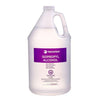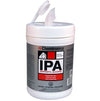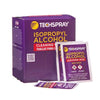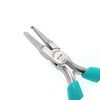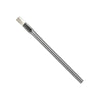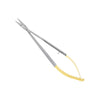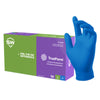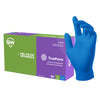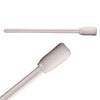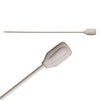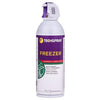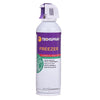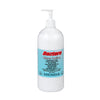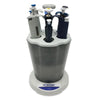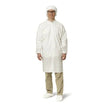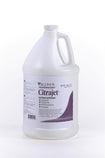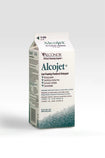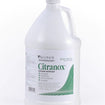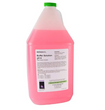- No products in the cart.
How Isopropyl Alcohol (IPA) Is Used In The Cannabis Extraction and Processing Industry
Oct
20
2020
In this article we will discuss the various uses of isopropyl alcohol (IPA) in the extraction and processing of Cannabis. Alcohol extraction of cannabis has been done number of years. Cannabinoids have excellent solubility in lower alcohols such as IPA and Ethanol, provided that the water content of the alcohol is low.
Therapeutic Cannabis
The global legal marijuana market is projected to reach almost $74 billion by 2027 per Grand View Research. In 2019 the medical segment held the largest market share at 71%. Although delta-9-tetrahydrocannabinol (THC) and cannabidiol (CBD) are the most widely use chemicals used in medicinal marijuana, there are over a hundred active components in the marijuana plant. CBD is derived from cannabis sativa, cannabis indica, and hemp, a cousin of marijuana. Some of the most popular purported uses for cannabinoids include pain control, glaucoma, and seizures. Many leading producers of medical cannabis consider USP grade Isopropyl Alcohol (IPA) to be one of the most affordable and effective solvents for industrial scale processing of marijuana and hemp.
Why IPA?
IPA is a nonpolar organic solvent well suited for cannabis extraction. It is often preferred over butane, ethanol, or CO2 due to safety, cost, and/or efficiency. For example, a problem with ethanol extraction is that it is a polar solvent that co-extracts chlorophyll, which imparts a green color and makes that product taste like grass. CO2 extraction can strip terpenes from the final product.
Nonpolar IPA disrupts the lipid bilayer of the trichome glands and extracts the desirable cannabinoids and terpenes. This cost-effective solvent evaporates and distills quickly because of its high vapor pressure and low surface tension. Furthermore, USP grade IPA leaves zero oil traces.
Methods
- Cold Extraction: QWISO Cannabis Concentrate (Quick Wash Isopropyl Alcohol Technique) is a method in which ground hemp or marijuana is soaked in subfreezing IPA to extract the cannabinoids.
- Standards: Non-polar solvents like IPA could be used to prepare isolate standards for quality testing.
- Extraction – Whole Flower: IPA might be used to extract therapeutic cannabinoids directly from intact flower through short contact times (5 s – 3 min). [1]
- Winterization: Extract or butane hash oil (BHO) is mixed with IPA and stored at –20 to –80°C for 24–48 h. This process precipitates unusable waxes, fats, triglycerides, and lipids. The product is then filtered or centrifuged to remove the undesirable solids. [2, 3]
- Cleaning: IPA can be effective at removing residue from glassware, trimmers, and analytical and process surfaces, so long as appropriate engineering controls are used.
- Compliance: Many HPLC methods use IPA for testing, such as hemp seed oil quantitation.
Potential Products
- Cannabis Oil Infused Product: Plant matter is be impregnated with cannabinoid oil/IPA mixture via vacuum pressurization. [4]
- CBD or CBG Isolates: These non-psychoactive compounds derived from hemp have a host of potential therapeutic uses. Some ISO 9001 certified facilities extract high purity CBD distillates using IPA. [5]
- Coffee Products Containing Cannabis: IPA is utilized to extract cannabinoids destined coffee creations. [6]
- Imbibable Cannabis Extract: An ingestible extract, syrup, sorbate, or blend is prepared by mixing mashed cannabis with ice cold 91% IPA. The filtrate is then removed through fractional distillation, after which it is decarboxylated to increase gastrointestinal absorption. [7]
- Pharmaceuticals: In 2019, GW Pharmaceuticals received European Commission approval for EPIDYOLEX® (cannabidiol) for the treatment of seizures in patients with two rare, severe forms of childhood-onset epilepsy. A search of cannabis patents by GW Pharmaceuticals indicates a number of ways in which IPA could be used for processing.
- Standard Preparation: IPA might be used to elute pure standards such as THC as disclosed in patent number US6730519B2.
Transdermal cannabinoids:
- IPA is used as a co-solvent for an encapsulated cannabinoid formulations containing: Δ9-tetrahydrocannabinol (Δ9-THC), Δ8-tetrahydrocannabinol (Δ8-THC), Δ9-tetrahydrocannabinolic acid (THCa), cannabidiol (CBD), cannabidiolic acid (CBDa), cannabigerol (CBG), cannabichromene (CBC) and cannabinol (CBN). [8]
- In this abandoned patent, 70% IPA is used as a transdermal delivery agent for cannabinoids for potentially relieving pain and inflammation for conditions like arthritis and fibromyalgia. Specifically, the active component mixture include 9-Tetrahydrocannabinol (delta-9-THC), 9-THC Propyl Analogue (THC-V), CBD, Cannabidiol Propyl Analogue (CBD-V), CBN, CBC, Cannabichromene Propyl Analogue (CBC-V), Cannabigerol (CBG), cannabinoid terpenoids, and cannabinoid flavonoids.
Solvent Quality Matters
Using USP grade IPA for producing plant-derived isolates, extracts, tincture, beverages, or salves is of utmost importance to the happiness and health of your customers. You can trust Lab Pro to deliver ACS/USP/NF grade 99% Isopropyl Alcohol for manufacturing, 99% HPLC grade IPA for testing, or associated glassware for your associated industrial needs.
Disclaimer: Any information in the article is intended for scientists over the age of 18 who perform research or correlating industrial duties.The chemicals mentioned above are meant to be used for research, industrial work, cleaning or disinfecting and should always be stored out of the reach of young children or infants. IPA is a flammable liquid that should be kept away from heat and open flame. IPA should not be ingested or present in consumables.
For over 40 years, Lab Pro Inc. has been committed to delivering the highest quality chemicals, reagents, and cleaning solutions to medical and biotechnical laboratories worldwide. To learn more, visit the biggest Lab Supply showroom in California, or contact us online or at 888-452-2776.
References
- Schmidt et al.: Isolation of Herbal and Cannabinoid Medicinal Extracts.S. Patent 0,017,216. January 23, 2003
- Pacifici R, Marchei E, Salvatore F, Guandalini L, Busardo FP, Pichini S: Evaluation of cannabinoids concentration and stability in standardized preparations of cannabis tea and cannabis oil by ultra-high performance liquid chromatography tandem mass spectrometry. Clinical Chemistry and Laboratory Medicine. 2017;55(10):1555-63.
- Puri PS: Winterization of oils and fats. J Am Oil Chem Soc 1980; 57:A848–A850.
- Brunson, M: Plant Product Infused with Oil and Method of Infusion. U.S. Patent Application 16/819,082. July 9, 2020.
- Havelka J: What is CBG and what are the benefits of this cannabinoid? Leafly (Internet), 2017. https://www.leafly.com/news/cannabis- 101/what-is-cbg-cannabinoid
- Bhairam, C, Bell, Z: Method for Making Coffee Products Containing Cannabis Ingredients. U.S. Patent Application 20,200,060,305. February 10, 2019.
- Imbibable Cannabis Extract. U.S. Provisional Patent Application No. 61/974,358, filed Apr. 2, 2014.
- Witowski, C., Salm, J.: Encapsulated Cannabinoid Formulations for Transdermal Delivery. U.S. Patent Application No. 16/246,411. July 18, 2019.







